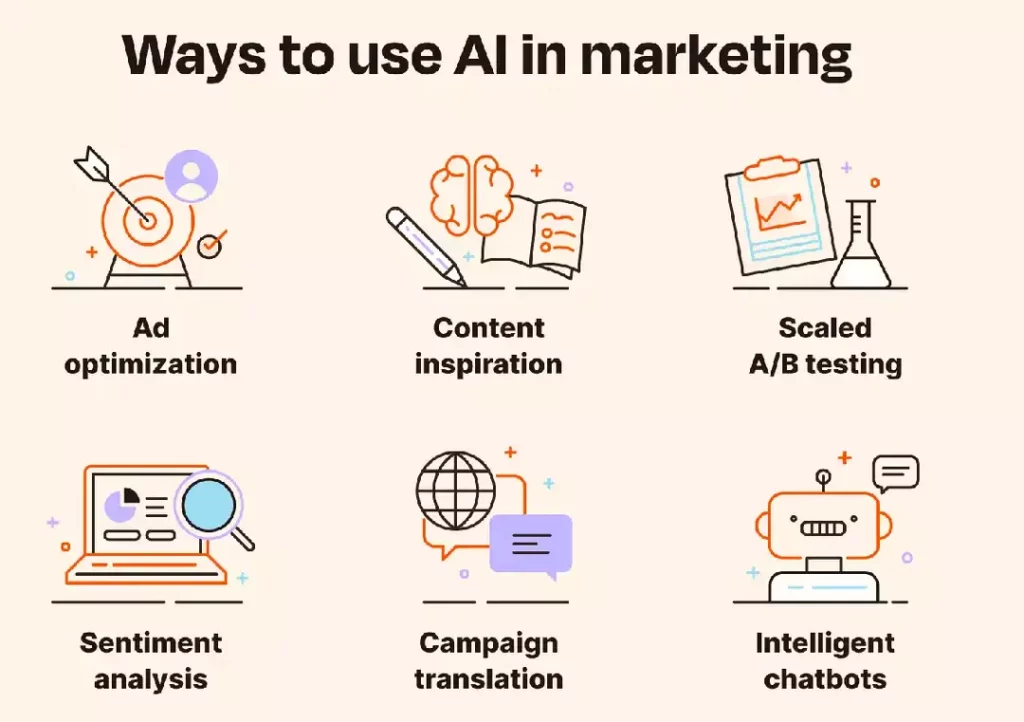
How Does AI Boost Campaign Performance and Efficiency?
In today’s fast-paced digital landscape, marketers are constantly seeking ways to optimize their campaigns and boost performance. One technology that has emerged as a game-changer in this pursuit is Artificial Intelligence (AI). By leveraging AI, marketers can dynamically adjust targeting, optimize bidding, and predict high-converting segments, ultimately leading to improved campaign efficiency and higher returns across channels.
In this blog post, we’ll delve into the ways AI can enhance campaign performance and efficiency, and explore the benefits of integrating AI into your marketing strategy.
Boosting Campaign Efficiency with AI
One of the primary ways AI boosts campaign performance is by dynamically adjusting targeting. By analyzing vast amounts of data, AI algorithms can identify the most effective audience segments for your campaigns, allowing you to tailor your messaging and content to the most receptive audiences. This targeted approach enables you to maximize your return on investment (ROI) and minimize waste.
AI also optimizes bidding in real-time, ensuring that your campaigns are always running at the most effective bidding strategies. By continuously monitoring and adjusting bidding strategies, AI can help you achieve your campaign goals while minimizing costs.
Predicting High-Converting Segments
AI’s ability to predict high-converting segments is another key benefit. By analyzing historical data and identifying patterns and trends, AI can pinpoint the most likely to convert segments of your audience. This allows you to allocate your budget more effectively, targeting the most valuable segments and maximizing your ROI.
Testing Multiple Variants with AI
Marketers often struggle with testing multiple variants of headlines, visuals, and segments to determine which performs best. AI makes this process seamless, allowing you to test multiple variants while the AI algorithm learns and reallocates budget in real-time. This enables you to quickly identify the most effective elements of your campaigns and make data-driven decisions.
Less Manual Tweaking, Higher Returns
The result of integrating AI into your marketing strategy is less manual tweaking and higher returns across channels. By leveraging AI’s ability to dynamically adjust targeting, optimize bidding, and predict high-converting segments, you can achieve greater campaign efficiency and effectiveness.
Rich Historical Data
For AI to learn and make informed decisions, it requires rich historical data. This data can come from a variety of sources, including customer interactions, website behavior, and campaign performance. The more data you collect and analyze, the more accurate AI’s predictions will be.
Benefits of Integrating AI into Your Marketing Strategy
The benefits of integrating AI into your marketing strategy are numerous. Some of the key advantages include:
- Improved campaign efficiency: AI enables you to dynamically adjust targeting, optimize bidding, and predict high-converting segments, leading to improved campaign performance and efficiency.
- Increased ROI: By optimizing your campaigns and targeting the most receptive audiences, you can maximize your ROI and minimize waste.
- Reduced manual tweaking: AI’s ability to test multiple variants and reallocate budget in real-time reduces the need for manual tweaking, freeing up your time to focus on other marketing initiatives.
- Enhanced data-driven decision-making: AI’s reliance on rich historical data enables you to make data-driven decisions, rather than relying on intuition or guesswork.
Case Studies: AI-Powered Campaign Success Stories
Several companies have successfully leveraged AI to boost campaign performance and efficiency. Here are a few case studies that demonstrate the impact AI can have:
- Case Study: A major retail brand used AI to optimize their ad targeting, resulting in a 25% increase in conversions and a 15% reduction in costs.
- Case Study: A leading fintech company used AI to predict high-converting segments, resulting in a 30% increase in revenue and a 20% reduction in customer acquisition costs.
- Case Study: A popular e-commerce platform used AI to test multiple variants of headlines and visuals, resulting in a 20% increase in click-through rates and a 15% increase in conversions.
Conclusion
In conclusion, AI has the potential to revolutionize the way marketers approach campaign performance and efficiency. By dynamically adjusting targeting, optimizing bidding, and predicting high-converting segments, AI can help you achieve greater campaign efficiency and effectiveness. With rich historical data and continuous learning, AI can help you make data-driven decisions and optimize your campaigns for maximum ROI.
Sources:






